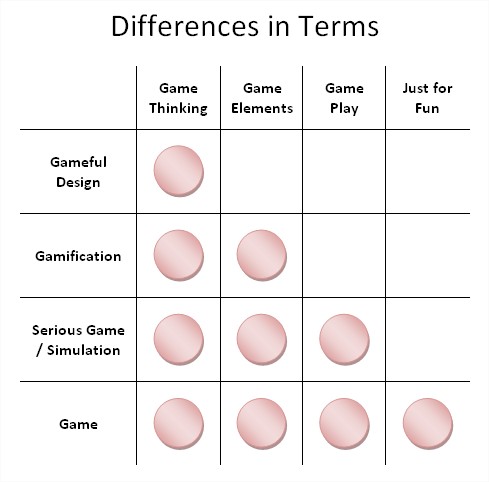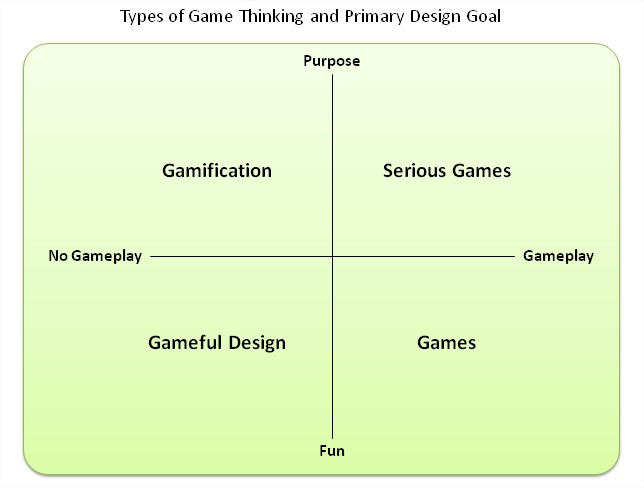Nomenclature nature
Last week I gave a talk at the Gamification 2013 conference at the Stratford campus of the University of Waterloo. A lot of conferences talk about “bringing together academia and industry” but it’s a difficult thing to do. Some conferences like IBM’s CASCON are able to do it really well. Gamification 2013 did a great job, and that was one of the highlights of the event from my perspective.
At the end of my talk I took some questions, the last of which was about the distinction between gamification and serious games.
Gamification is generally defined as the usage of game design elements in non-game contexts.
Serious games are generally defined as full fledged games built for a purpose other than pure entertainment.
There are other overlapping terms and categories in this area, such as simulations, play, persuasive games, game mechanics, exergames, advergames, games for health, games for change, games for impact, gameful design, etc. Getting people to agree on a common terminology when the lines are grey and overlapping is difficult.
One important thing science and academia provides to society is the ability to meaningfully categorize different things using a common nomenclature. A common nomenclature makes it easier to teach things, and easier for people to communicate with one another about the same ideas. It would be ideal to categorize this area as much as is possible. It’s something I’m trying to help do myself. Lots of people across academia and industry are trying to do this now:
When this question was raised I made a point that I have yet to meet anybody in industry use the term “serious games” to describe what they create, or what they want somebody to create for them. I’m sure there’s people working in industry that use the term “serious games” to describe what they do, a quick Google search confirms as much. I just haven’t met any yet myself. But I do talk to a lot of people in industry, and I find they will just use the term “gamification” instead, or sometimes things like “health games” or whatnot, even if what they are describing is strictly speaking a serious game.
Why is this? I think it comes down to sex appeal / marketability. Outside of academia there are usually better alternative words to not only communicate what you are doing to somebody else, but to sell what it is you’re doing to somebody else. For example a client may not care about the distinction between serious games and gamification, they’ve just heard they can increase ROI through gamification and so this becomes the common terminology they use to seek out and communicate with a company that provides gamification solutions.
I propose the following:
The granularity of distinctions and degree of formality used in language are determined by the value that they provide to the community.
So an academic community will tend to have a finer granularity of distinctions and a higher degree of formality than industry, because the value in doing so exists. Sometimes this filters out successfully to the broader community when it provides enough value, and sometimes it doesn’t.
Is there value right now for industry to make the distinction between gamification, serious games, gameful design, and games when describing their products? Will there be in the future as gamification evolves as a design technique?
We’ll see. But I think it’s a decision a community organically makes.


